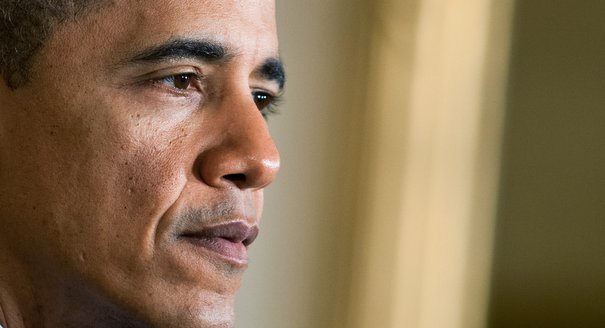When democracies and autocracies are seen as interchangeable targets, the language of democracy becomes hollow, and the incentives for democratic governance erode.
Sarah Yerkes, Amr Hamzawy
{
"authors": [
"David Rothkopf"
],
"type": "legacyinthemedia",
"centerAffiliationAll": "",
"centers": [
"Carnegie Endowment for International Peace"
],
"collections": [],
"englishNewsletterAll": "",
"nonEnglishNewsletterAll": "",
"primaryCenter": "Carnegie Endowment for International Peace",
"programAffiliation": "",
"programs": [],
"projects": [],
"regions": [
"North America",
"United States",
"Western Europe",
"United Kingdom"
],
"topics": [
"Economy"
]
}
As both the United States and the United Kingdom struggle to find ways to restart their economies, President Obama may be able to learn from the changes being introduced by Prime Minister Cameron.
Source: Financial Times

Mr Obama was hailed as the man of tomorrow. Mr Cameron, with his apparent scepticism towards the European Union and seemingly backward-looking sensibilities, appeared to critics – like me – to be a relic of yesteryear. Yet now, just two months after Mr Cameron’s election, it is London that has a claim to be the capital city of change you can believe in and Washington that seems to be stuck in time. For once, in a relationship that has often seen UK prime ministers following in the footsteps of US presidents, it may be time for America to confound perceived recent tradition and follow the lead of the UK. At least that seems to be the case when it comes to tackling the core problem facing either country: getting their respective economic houses back in order.
In Washington, Mr Obama is teetering on the brink of a full-fledged war with business. It was hinted at early in the administration as, one by one, top posts were filled without any going to candidates with serious business leadership experience. Meanwhile, by contrast, still in the formative days of his tenure, Mr Cameron has just announced the hiring of Lord Browne, the former BP chief executive, as part of a programme to bring business leaders into the government to help with budget cuts and to instill a more businesslike way of thinking within his ministries.
The choice of Lord Browne is, of course, all the more resonant in Washington, where BP is a leading target because of the oil spill in the Gulf of Mexico.
On the eve of Mr Cameron’s first visit to Washington next week, other differences of approach to grappling with the looming challenges of our time have emerged, each suggesting that Mr Cameron has assumed the role of bold innovator.
Within weeks of taking office, he announced a plan to cut back the budget to fight the deficit, while Mr Obama and the US Congress have effectively embraced the deficit as if it were a life-preserver in economically storm-tossed seas. The American president has promised to consider cuts but real action looks unlikely soon.
While Mr Obama decried “politics as usual” as a source of many of America’s economic imbalances and policy gaps, meaningful political reform has been left off the agenda and deals with special interests have continued to drive legislation. Mr Cameron, on the other hand, has effectively embraced bipartisanship via his coalition with the Liberal Democrats, Britain’s third party, and has just announced a referendum on sweeping and overdue changes to the political system.
Mr Cameron may flame out. Mr Obama may fulfil his great promise. It must also be acknowledged that many of the obstacles he faces are due to a political system that excels at producing the antibodies to kill anything that looks like real change. No doubt there is much in Mr Obama’s expansive and principled worldview that Mr Cameron should emulate.
Nonetheless, Mr Obama would do well to watch closely the Cameron experiments because they are in areas in which the US could use strong and innovative action. Indeed, a lot is riding on the ability of both young leaders to capitalise on their own differences and learn from each other as they grapple with the 21st-century challenges their nations face.
In particular, it is essential that Mr Obama recognises that for all the missteps of business in the recent past, his greatest problem is restarting the economy. In the end, businesses rather than governments do that. Further, the businesslike view that men such as Lord Browne will bring to the UK government will not only be about how to reduce red ink, it will also be about understanding that not every outlay is the same. Some constitute wasteful spending. But some are investments and there is a difference.
Government leaders need to master the concept of providing taxpayers with a return on their investment – through spending on infrastructure, education, realigned energy policies and other moves that will create jobs now and attract private investment and build growth over many years to come. That really does require the best of business thinking – which in turn might seem to mean that, for now at least, America also needs some of the best of British thinking.
Carnegie does not take institutional positions on public policy issues; the views represented herein are those of the author(s) and do not necessarily reflect the views of Carnegie, its staff, or its trustees.
When democracies and autocracies are seen as interchangeable targets, the language of democracy becomes hollow, and the incentives for democratic governance erode.


Sarah Yerkes, Amr Hamzawy
German manufacturing firms in Africa add value, jobs, and skills, while benefiting from demand and a diversification of trade and investment partners. It is in the interest of both African economies and Germany to deepen economic relations.
Hannah Grupp, Paul M. Lubeck
Unexpectedly, Trump’s America appears to have replaced Putin’s Russia’s as the world’s biggest disruptor.

Alexander Baunov
From Sudan to Ukraine, UAVs have upended warfighting tactics and become one of the most destructive weapons of conflict.


Jon Bateman, Steve Feldstein
And how they can respond.



Sophia Besch, Steve Feldstein, Stewart Patrick, …